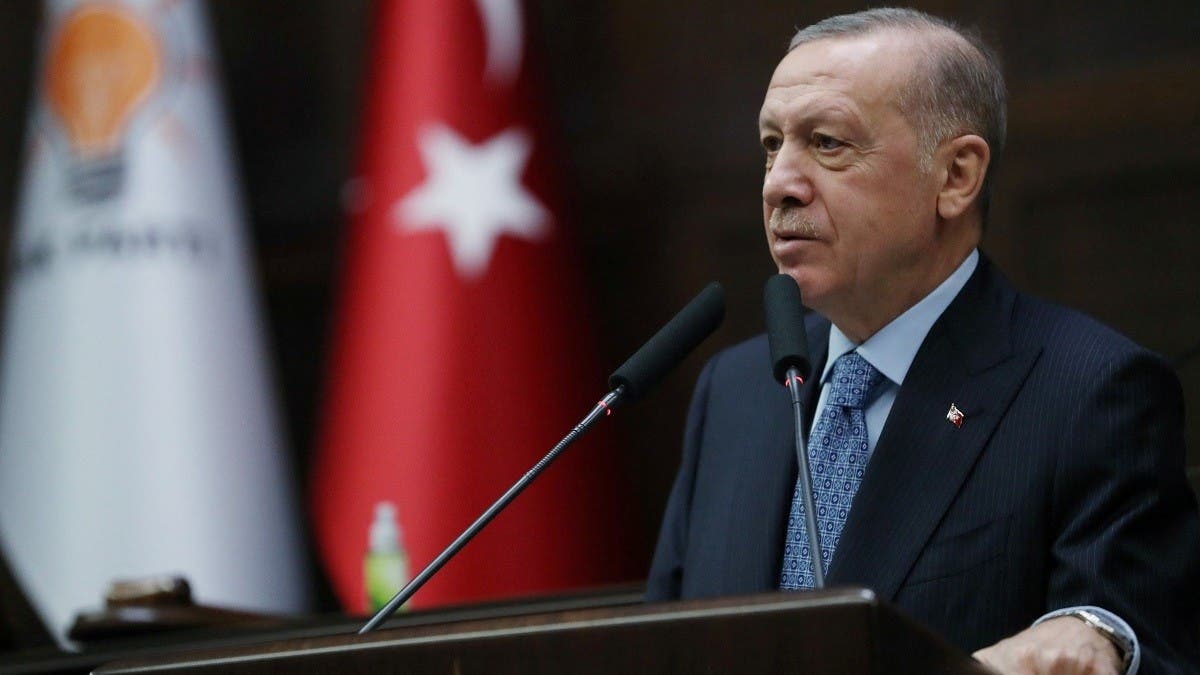President Recep Tayyip Erdogan promised on Wednesday to tame Turkey’s surging inflation, which hit 36 percent last month, but economists predicted it could push much higher, piling further pressure on the battered lira currency.
The lira shed 44 percent of its value in 2021, its worst performance in Erdogan’s near two decades in power.
For the latest headlines, follow our Google News channel online or via the app.
It stood at 13.31 against the dollar at 1705 GMT, up from Tuesday’s close of 13.8. Earlier on Wednesday it had rallied as far as 4.7 percent to 13.15, its strongest level in more than a week, though it was not immediately clear why it had firmed so much.
Thanks in part to costly state interventions in the currency market and to government measures that helped calm a full-blown crisis last month, the lira had largely held in a 13.7-13.94 range since last Thursday.
Speaking in parliament, Erdogan said Turkey was protecting its economy against what he called attacks and had taken under control “foreign financial tools that can disrupt the financial system.”
“The swelling inflation is not in line with the realities of our country,” Erdogan said, adding that the government’s measures would soon soften the burden of “unjust” price hikes.
Under pressure from Erdogan, who seeks higher growth by boosting production and exports, the central bank has slashed its policy rate by 500 basis points to 14 percent since September. It holds its next rate-setting meeting on Jan 20.
Goldman Sachs said in a research note it expected annual inflation to exceed 40 percent in January, after which it could surpass 50 percent and remain elevated until the end of the year, when base effects would lower it to around 33 percent.
“The deeply negative real rates and the high level of loan growth are likely to keep inflation elevated and continue to put pressure on the lira,” the Wall Street bank said.
Economic growth
Despite the recent market volatility, Turkey’s economy is estimated to have grown by a hefty 9.5 percent in 2021, the World Bank said in its latest Global Economic Prospects report, as it rebounded from the coronavirus pandemic and related lockdowns.
But the bank also forecast that growth would slow to 2.0 percent this year and 3.0 percent in 2023. In its previous report last June, it had seen growth of 5.0 percent in 2021 and 4.5 percent in both 2022 and 2023.
Turkey’s $720-billion economy grew 0.9 percent in 2019 and 1.8 percent in 2020, weighed down by a recession triggered by a separate currency crisis and later by the pandemic.
After the lira slumped to a record low of 18.4 against the dollar in late December, Erdogan announced a scheme to encourage savers to convert foreign exchange deposits, compensating depositors for any losses due to lira weakness.
On Tuesday Turkey added corporate accounts to the scheme, which the Treasury says has attracted some 108 billion lira ($7.8 billion) of deposits.
Goldman Sachs said it expected Turkish authorities to attempt “more administrative and regulatory measures” to curb inflation before making an eventual monetary policy U-turn.
But Carlos de Sousa, EM debt portfolio manager at Vontobel Asset Management, said he did not see rate hikes any time soon.
“This time is different. Erdogan has finally got tired (of having high interest rates),” he said.
Read more:
Turkey’s inflation soars to 36 percent, highest in Erdogan era
Three Turkish soldiers killed on Syria border
Turkey releases two Bogazici students from prison

 World2 years ago
World2 years ago
 World2 years ago
World2 years ago
 Entertainment7 years ago
Entertainment7 years ago
 World7 years ago
World7 years ago
 Entertainment7 years ago
Entertainment7 years ago






